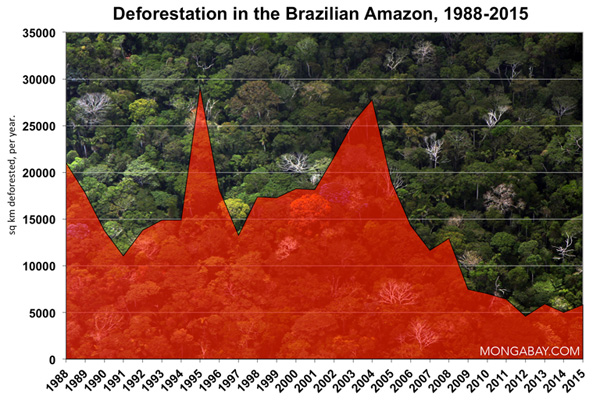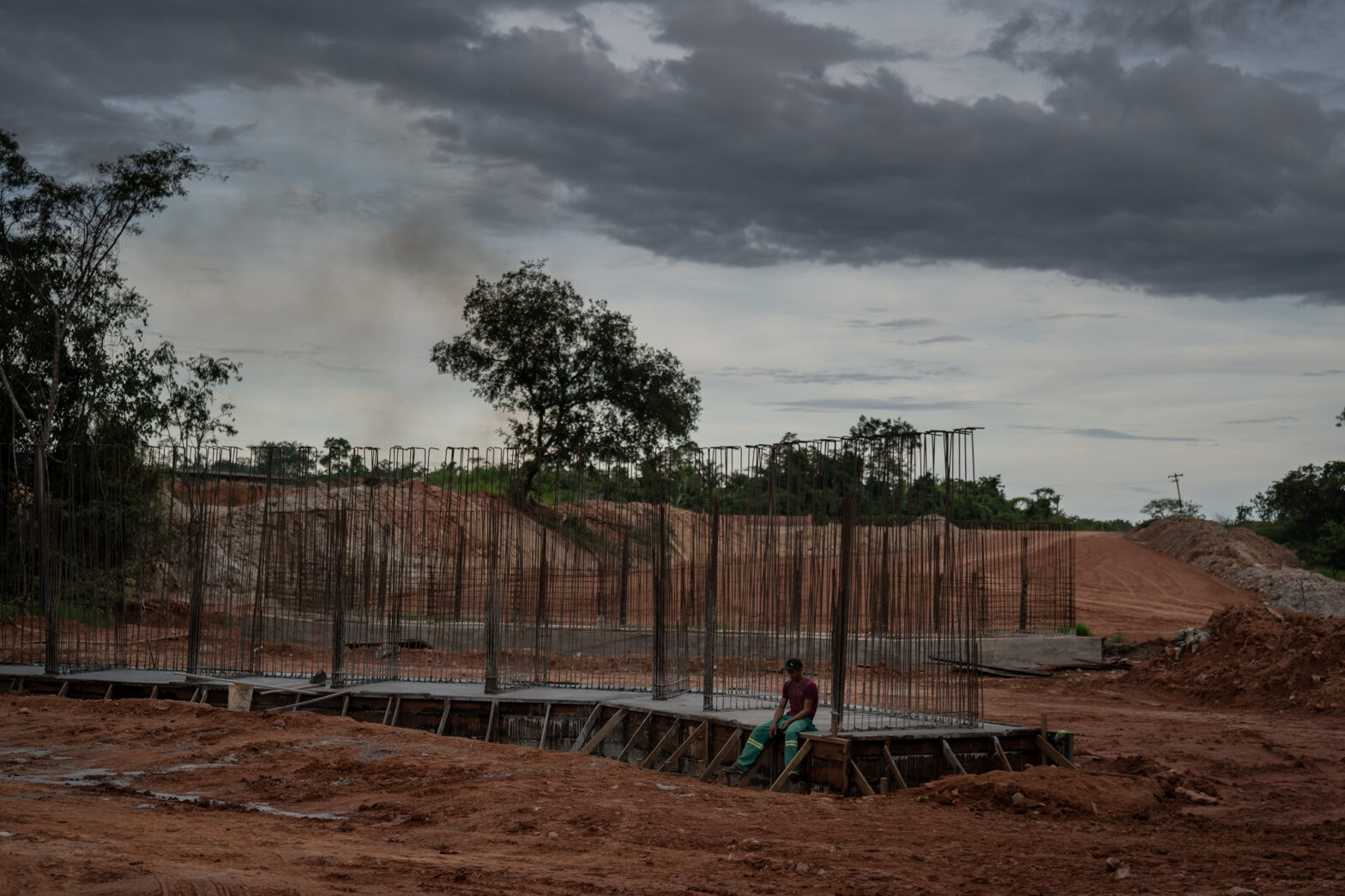Brazilian President Dilma Rousseff disappointed environmentalists with what they call weak commitments on reducing deforestation and supporting renewable energy.
In a joint declaration issued with President Obama after her visit to the White House, Rousseff outlined three commitments for Brazil’s contribution to reducing greenhouse gas emissions, including eliminating “illegal deforestation”, restoring 12 million hectares of forests, and producing 28-32 of its energy from renewable sources other than hydropower.
“Brazil will pursue policies aimed at eliminating illegal deforestation, coupled with ambitious enhancement of carbon stocks through reforestation and forest restoration,” read the joint statement. “For that purpose, Brazil intends to restore and reforest 12 million hectares of forests by 2030.”
“Brazil intends that its total energy matrix reach, by 2030, a share of 28% to 33% from renewable sources (electricity and biofuels) other than hydropower. Brazil also intends to improve low-carbon agricultural and grazing land practices through the promotion of sustainable agriculture and productivity enhancement; to promote new, clean technology standards for industry; to further promote energy efficiency measures and to expand the use of non-fossil fuel energy sources domestically.”
But while Obama applauded those steps, environmentalists said the targets represent little more than maintaining the status quo.
“It is … disappointing that President Rousseff’s goal on deforestation – to “pursue policies aimed at eliminating illegal deforestation” – goes no further than compliance with existing law,” wrote Steve Schwartzman of the Environmental Defense Fund in a blog post responding to Rousseff’s remarks. “Particularly in light of Pope Francis’s inspiring encyclical on climate change, President Rousseff sells Brazil’s achievements and abilities short in stating that all Brazil will do is follow its own law.”
EDF noted that individual Brazilian states like Pará have already set more ambitious targets for curbing deforestation.

Deforestation in the Brazilian Amazon has fallen sharply over the past decade.

But recent data from Imazon SAD’s system suggests deforestation is on the rise.
Greenpeace Brazil added that the reforestation target represents only half of what is required under Brazil’s Forest Code. In other words, the pledge is simply another commitment to comply with existing laws, rather than a bold new initiative.
“With her fragile commitments (or non-commitment), Dilma goes against the will of at least 1.2 million people who have already given their support to a bill for true zero deforestation,” the activist group said.
Greenpeace added that the renewable energy target represents a continuance of current policy, stating that renewable energy from non-hydroelectric sources already amounts to 28 percent. Much of Brazil’s renewable energy comes from sugar cane ethanol production.
Nonetheless, Brazil has done more to reduce greenhouse gas emissions that any large country over the past decade. Emissions from all sectors have fallen by about 40 percent since 2005, spurred by an 85 percent cut in carbon dioxide from deforestation. However that trend may be reversing, according to satellite data released by Imazon, which shows a sharp rise in monthly forest loss over the past year. Official deforestation data for the 2014-2015 year won’t be released until November or December.
Climbing deforestation has been attributed to several factors, including Brazil’s flagging economy, which makes forest conversion for agriculture more attractive; the government’s steep cuts in funding for programs to reduce deforestation; a renewed push for large-scale infrastructure projects in the Amazon; and relaxation of the country’s Forest Code, which governs how much forest must be preserved on private lands.
– This report was originally published in Mongabay and is republished by an agreement to share content.





